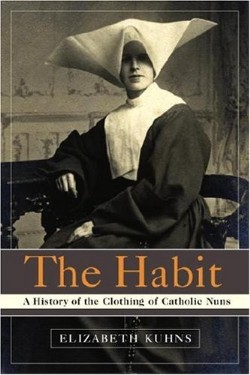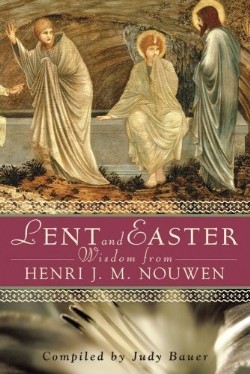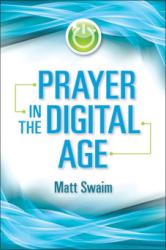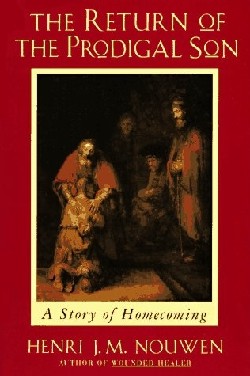Habit : A History Of The Clothing Of The Catholic Nuns
$19.00
Curiosity about nuns and their distinctive clothing is almost as old as Catholicism itself. The habit intrigues the religious and the nonreligious alike, from medieval maidens to contemporary schoolboys, to feminists and other social critics. The first book to explore the symbolism of this attire, The Habit presents a visual gallery of the diverse forms of religious clothing and explains the principles and traditions that inspired them. More than just an eye-opening study of the symbolic significance of starched wimples, dark dresses, and flowing veils, The Habit is an incisive, engaging portrait of the roles nuns have and do play in the Catholic Church and in ministering to the needs of society.
From the clothing seen in an eleventh-century monastery to the garb worn by nuns on picket lines during the 1960s, habits have always been designed to convey a specific image or ideal. The habits of the Benedictines and the Dominicans, for example, were specifically created to distinguish women who consecrated their lives to God; other habits reflected the sisters’ desire to blend in among the people they served. The brown Carmelite habit was rarely seen outside the monastery wall, while the Flying Nun turned the white winged cornette of the Daughters of Charity into a universally recognized icon. And when many religious abandoned habits in the 1960s and ’70s, it stirred a debate that continues today.
Drawing on archival research and personal interviews with nuns all over the United States, Elizabeth Kuhns examines some of the gender and identity issues behind the controversy and brings to light the paradoxes the habit represents. For some, it epitomizes oppression and obsolescence; for others, it embodies the ultimate beauty and dignity of the vocation.
Complete with extraordinary photographs, including images of the nineteenth century nuns’ silk bonnets to the simple gray dresses of the Sisters of Social Service, this evocative narrative explores the timeless symbolism of the habit and traces its evolution as a visual reflection of the changes in society.
in stock within 3-5 days of online purchase
SKU (ISBN): 9780385505895
ISBN10: 0385505892
Elizabeth Kuhns
Binding: Trade Paper
Published: April 2005
Publisher: Random House Inc.
Print On Demand Product
Related products
-
Screwtape Letters
$16.99Add to cartWormwood, a demon apprentice, must secure the damnation of a young man who’s just become a Christian. He seeks the advice of an experienced devil, his uncle Screwtape. Their correspondence offers invaluable—and often humorous—insights on temptation, pride, and the ultimate victory of faith over evil forces. Paperback with French flaps and deckled page edges.
-
Lent And Easter Wisdom From Henri J M Nouwen
$11.99Add to cartThought-provoking words from renowned spiritual writer, Henri J. M. Nouwen, lead readers along a journey of conversion during Lent and Easter week. These periods of penance and celebration, lavish with rituals, help us become more sensitive to our own weaknesses and Christ’s victory over sin. Through it all, Father Nouwen comforts and reassures us with reminders that God loves and accepts us even in our human state.
Each daily reflection–from Ash Wednesday through the Second Sunday of Easter–begins with thoughts from Father Nouwen on an appropriate theme, supported by Scripture, prayer, and a suggested activity for spiritual growth.
-
Prayer In The Digital Age
$16.99Add to cartThe digital age is an age of information overload. In this noisy, technology-driven world, full of important news and urgent messages, spending silent time in prayer can seem impossible.
In his second book, Matt Swaim brings to light the obstacles to prayer inherent in our digitally-connected culture and explores both the challenges and benefits of living a Christian life in the 21st century. Drawing on the spiritual wisdom of such masters as St. Ignatius of Loyola, St. Therese of Lisieux, and Venerable Pope John Paul II, Swaim provides practical suggestions for learning how to “unplug” and incorporate prayer into one’s daily life.
Delve into how technology truly affects our faith:
In a culture suffering from information overload, what’s the difference between knowing facts about God and actually knowing God?
How does our desire to be entertained interfere with knowing God as He really is, rather than just as we want to perceive Him?
What are the distinctions between employing media and information as tools to aid evangelization and spiritual growth while avoiding a purely consumer approach to the faith?
How can information overload deaden our ability to listen? -
Return Of The Prodigal Son
$17.00Add to cartA chance encounter with a reproduction of Rembrandt’s The Return of the Prodigal Son catapulted Henri Nouwen on a long spiritual adventure. Here he shares the deeply personal and resonant meditation that led him to discover the place within where God has chosen to dwell.
In seizing the inspiration that came to him through Rembrandt’s depiction of the powerful Gospel story, Henri Nouwen probes the several movements of the parable: the younger son’s return, the father’s restoration of sonship, the elder son’s vengefulness, and the father’s compassion. In his reflection on Rembrandt in light of his own life journey, the author evokes a powerful drama of the parable in a rich, capativating way that is sure to reverberate in the hearts of readers. The themes of homecoming, affirmation, and reconciliation will be newly discovered by all who have known loneliness, dejection, jealousy, or anger. The challenge to love as the father and be loved as the son will be seen as the ultimate revelation of the parable known to Christians throughout time, and here represented with a vigor and power fresh for our times.
For all who ask, “Where has my struggle led me?” or for those “on the road” who have had the courage to embark on the journey but seek the illumination of a known way and safe passage, this work will inspire and guide each time it is read.






Reviews
There are no reviews yet.